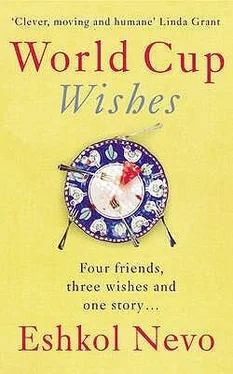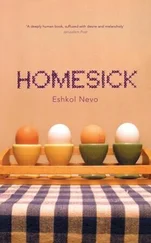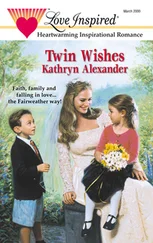We didn’t know what to say. In all the years we’d been friends, we’d never seen Churchill confused.
In any case, he went on, Ya’ara found out. She was sitting in a café eavesdropping on a conversation two girls were having at the table next to her. It was just my luck that those girls were Sharona and her best friend. And that was the day Sharona had decided she couldn’t hold back any more and had to tell someone about our Sunday Culture Club, as she and I called it.
Oy, Amichai blurted out.
It’s a small country, Churchill said with a nod. When I got home from work, there was a message from Ya’ara: come over, we have to talk about Sharona. She didn’t sound upset on the answering machine. Just the opposite. She sounded like she’d already come to a decision. I went over to hers, and on the way, I decided to go for a plea bargain. I confessed to all the charges against me and asked for leniency. I told her it was a vestige of the old Churchill. That since I met her, I’m a different person. A better person. And Sharona — Sharona is just a vestige I’ve been dragging along with me. She said she couldn’t care less, vestige or no vestige, after the guitarist who’d played with her heart for five years, she’d sworn that she’d never let another man treat her like that. No matter how much she loved him. So she was asking me to go.
That’s when you proposed? Ofir asked and scratched his forehead. The whole story seemed to astound him. As if in his new world of purified energy there was no room for that kind of deception.
No, of course not, Churchill said. You should have seen her when she opened the door. There was absolutely nothing to say. And when I showed up at her flat the next day without calling first, with a ring, and got down on my knees, she said, are you kidding? and turned her back on me.
Very good, I blurted out.
Amichai gave me an angry look.
If she had said yes right away, it would have been less interesting, I tried to explain. I felt as if I were sticking my foot deeper into my mouth.
Wait a minute, so how did you finally convince her? Ofir asked quickly, to get me out of the sticky situation.
You’ll be surprised, Churchill said, pouring himself another drink. It has to do with you.
Me? Ofir said, drawing back. The story was astounding him more and more.
Yes, Churchill said. She argued that if it was my nature to cheat, a wedding wouldn’t change me. So I said, people can change completely. Just look at Ofir. Who would’ve thought a year ago that he’d be wearing loose, white clothes and that he’d be so calm.
Amichai and I looked at each other. As far as I remembered, of all of us, Churchill was the most sceptical about the changes in Ofir.
Are you telling me that’s what convinced her? Amichai said doubtfully.
No, Churchill said. But that was when I saw that look in her eyes for the first time, the look that says a person is ready to be convinced. Then came a week of crying and begging. And small gifts. Till she finally agreed, on two conditions: the first, that we have a reform ceremony performed by a woman rabbi. And second, that I don’t say a single word to my friends about the circumstances that led to the wedding. I want them to think you’re so in love with me that you just couldn’t wait. That’s what she said. And I kissed her on the lips and said that was the truth.
So why are you telling us? Why are you breaking your promise?
It’s your fault, Churchill accused us. I didn’t want a stag do. I knew this would happen if I drank. But you insisted.
We were silent. Amichai and Ofir looked down. I didn’t.
So that’s it, now I’m in your hands, he said and looked at me. His eyes already had that alcohol glaze. If you want, you’ll keep this conversation to yourselves. If you want, you’ll tell me — I mean her.
Why should we tell? Amichai quickly reassured him. We’re your friends.
It would be stupid to tell her, Ofir said. It’s against the direction of love.
I didn’t say anything. I thought about the raven in Ovid’s Metamorphoses , which was given its black colour after it informed on one of the gods.
The three of them looked at me expectantly. As if the bill had already come and they’d all put cash on the table and I still had to add my share before we could give the little plate with the money to the waiter.
Do you love her at all? I asked.
Of course, Churchill said, taken aback. What do you mean? What kind of question is that?
Because the way you tell the story, I persisted, it sounds like you’re talking about one of your cases. It sounds like the whole point here was to win.
Churchill looked at me sadly. It’s because I talk like that, he said. Everything with me always sounds calculated. But you’re my friends, you all should know that … I mean … you especially … his eyes on me.
He poured himself another beer. His hand shook and a few drops fell onto the table.
I’m lost without her, he said, and a tear glistened in the corner of his eye. I’m completely lost without her.
Amichai and Ofir looked at him in alarm, unable to accept the new Churchill.
I couldn’t tell if something had really cracked in him or whether this was just another prosecutorial trick meant to guarantee that we’d keep his secret. But still, the ‘you especially’ managed to touch me. So I made a zipped-up gesture across my lips and said, it’s OK, Churchill, you have nothing to worry about from me.
*
On the other hand, I politely refused the offer to be one of the four people to hold up the poles of their wedding canopy. There’s a limit, right? I stood at a slight distance, a bit cut off, while the woman rabbi performed the ceremony, and I thought, what a shame that Ya’ara is wearing contacts, because she looks better in glasses. But even so, she’s breathtaking. Outward beauty isn’t the thing with her. It’s those contradictions between innocence and keen intelligence, between assertiveness and gentleness, between playfulness and seriousness. That’s what makes her so Ya’ara. And I thought, I’m the only guy at the wedding, except for the groom, who’s slept with the bride. And I thought, that’s no consolation. It’s pathetic that two years later, I’m still in love with her. It was a mistake to come. An unavoidable mistake. And I thought, that rabbi thinks she has a sense of humour, but she doesn’t. And I thought that the congratulatory message from all of us that Ofir read aloud was written beautifully, and that it was a shame that those years in advertising had left him fed up with words.
I thought and moved around and thought and moved around, my face expressionless, from the table where I was sitting with the guys to the table with the ‘we-don’t-know-where-to-put-them-so-we-sat-them-with-other-people-we-didn’t-know-where-to-put’ guests, where my parents were sitting.
Churchill had also invited Amichai’s mother and Ofir’s mother, but my parents were the only ones who showed up because ‘if you’re invited — it’s impolite not to go’. As usual, my mother charmed everyone with her glowing optimism, preparing the ground for my father’s questions about the occupations of the others at the table — questions meant to provide him with the natural opportunity to hand out the family printing house’s business card. They both tutted in perfect synchronisation about the increased security (what a sad state of affairs if we have to be afraid at weddings!), and both watched me the entire time: my mother with an expression of blind admiration, and my father with a look of disappointment bordering on despair.
It’s always been like that. When I brought home my school reports, she was always thrilled with my marks in literature and history and he would resign himself to the ones I got in physics and maths. She thought it was mag-ni-fi-cent when I decided to study liberal arts in Tel Aviv, and he didn’t understand why liberal arts, for crying out loud, what are you going to do with it? How will you make a living? What’s going to become of you?
Читать дальше












